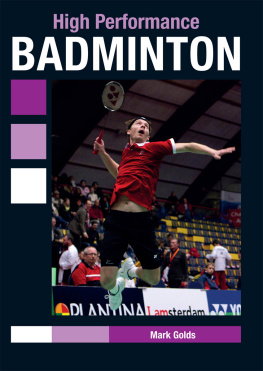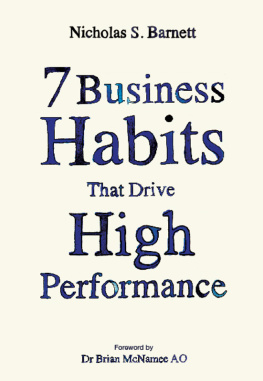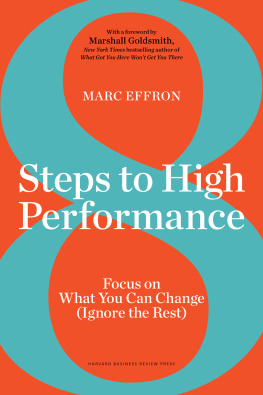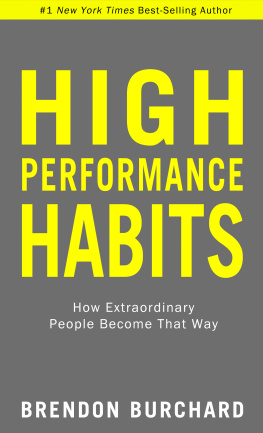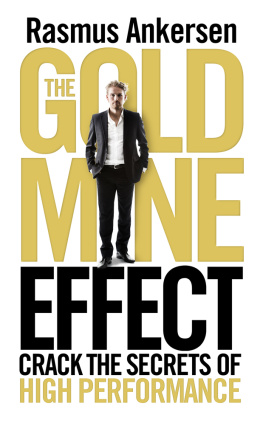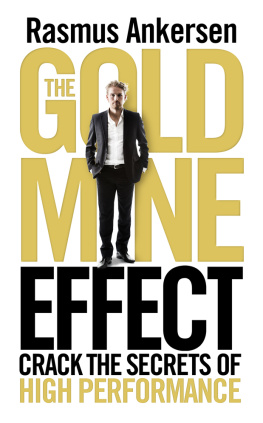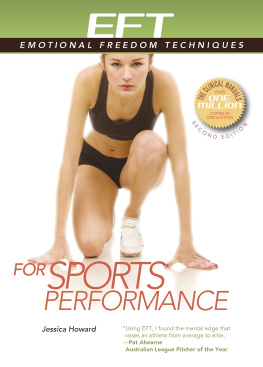

Jake Humphrey and Prof Damian Hughes
HIGH PERFORMANCE
Lessons from the Best on Becoming Your Best

CONTENTS
ABOUT THE AUTHORS
Jake Humphrey is the lead Premier League football presenter on BT Sport. He formerly spent a decade at the BBC, where he covered the likes of Formula 1, the FIFA World Cup and the London Olympics.
Damian Hughes is an expert on sporting culture and a visiting professor at Manchester Metropolitan University. In their multi-million-download podcast, Jake and Damian interview remarkable individuals from Kelly Holmes to Matthew McConaughey to Jonny Wilkinson to uncover how they got that way.
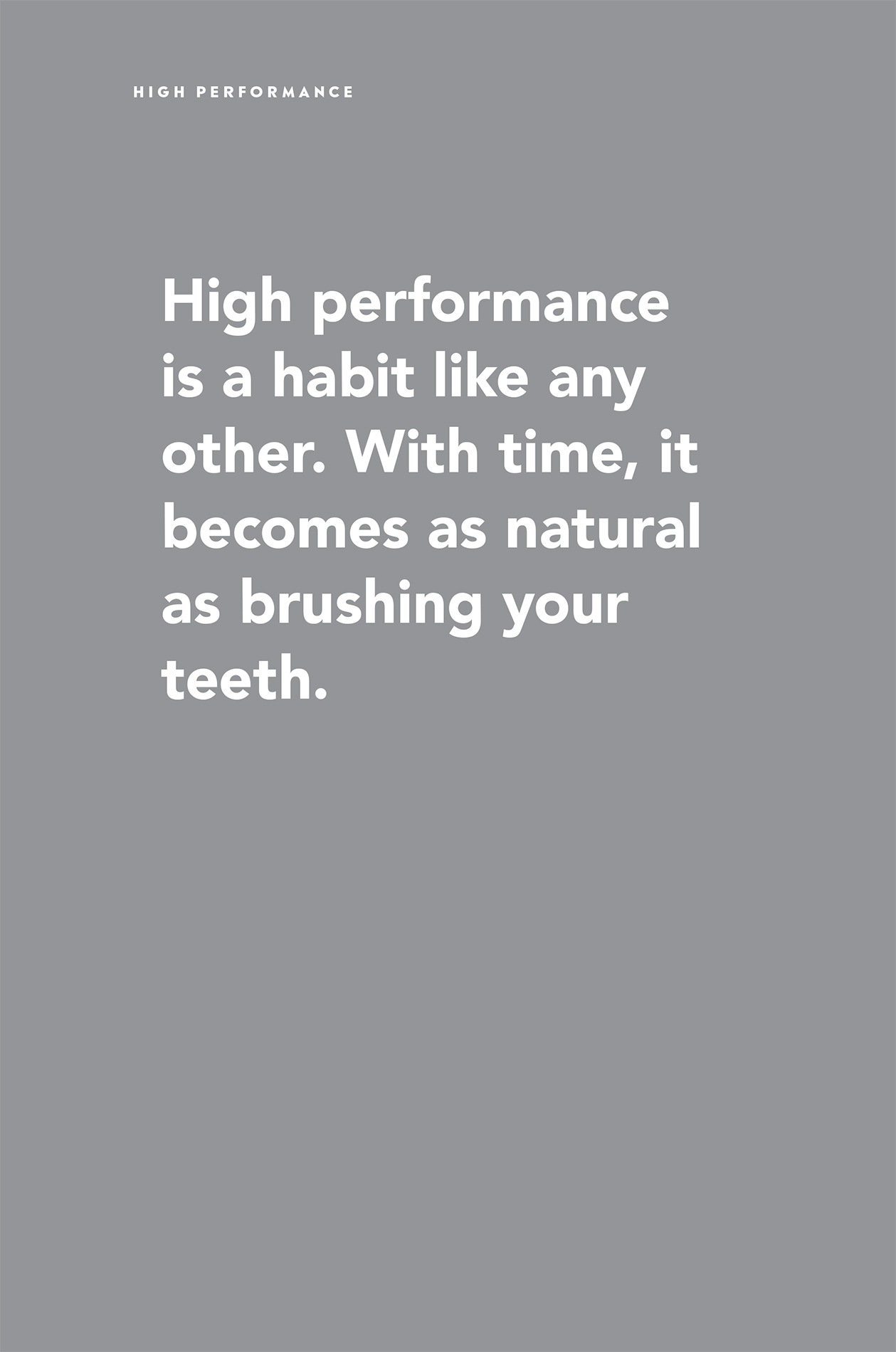
INTRODUCTION
NOTHING IS FIXED
Jake
Failure changed my life.
It was the mid-1990s. I had just finished my A-Levels, and I had my life mapped out. Nobody thought I was on track for greatness, least of all myself. I had been the epitome of average at my school in Norwich: I wasnt on any sports teams, I wasnt part of any societies or clubs, I couldnt act or sing. In fact, I was so average Id been fired from McDonalds a few months previously for a lack of communication skills.
Life wasnt awful, but it wasnt amazing either. And so my horizons were pretty narrow. I had a place lined up at the University of Nottingham to study media; after that, I was planning to get a job back in my hometown, maybe for the local newspaper. It was a vague plan the details of how exactly I was going to get that job were pretty woolly. But somehow it felt like my destiny. I never dreamed of a career that would take me much further than Norwich, let alone around the world.
After a summer of drinking in East Anglia and holidaying in Faliraki, it was finally A-Level results day. I clambered into my mums pistachio green VW Polo and drove to collect my results, with my younger brother in tow. Upon arriving at the 1950s complex that housed my run-down state school, I made my way to the table for students whose surnames started with H. As I was passed the envelope, I prepared myself for what was on the page, fully expecting grades good enough to get my university place.
I needed B, C, C.
I got E, N, U.
I didnt even know what an N was. I was told by a teacher that it stands for narrow. As in, I had narrowly missed getting an E. But Id failed anyway.
A total disaster.
Or so I thought.
Today, I believe those awful grades were the single best thing that ever happened to me.
Weeks later, having processed my failure and apologised to my parents a few thousand times I was back at the same school studying for my retakes. During my first week back, my politics teacher, Mr Brogan, read out a letter that had been sent to our politics class. It invited students to appear on a new cable channel, Rapture TV, to talk about political issues.
Despite my massive exam humiliation, I was young, naive and inexplicably certain I would make an excellent pundit. I jumped at the opportunity to work in TV. The next week, I rocked up at Raptures office wearing the late nineties staple of a Sweater Shop top and baggy jeans. I told them about the fast-food sacking and the A-Level catastrophe, and asked them if I could give the channel a hand. I promised to do anything and everything: not just opining on politics, but also making tea, operating the phones whatever they needed. They agreed they needed all the help they could get and I started working at Rapture for 5 cash each weekend.
Two decades on, its tempting to think this moment was part of my destiny the first step in some inevitable path into my life in television. It wasnt. In the wake of my A-Level cock-up, I had no real life plan, let alone any understanding of how TV worked. My cash-in-hand job wasnt the result of some grand strategy. It was luck.
But it turned out to be the start of something great. Even though Rapture would go bust a few years later, I remember my days there fondly. It was my first time in a TV studio, and I loved it the bustle of the production crew, the excitement of going on air. More importantly, the experience caused me to reconsider my approach to success. You see, my A-Level disaster and my Rapture TV recovery was the first time I started to think about what it meant to achieve your potential.
Until then, Id thought that success in life was simple: you either had talent or you didnt. If you did, life would be easy; if you didnt, life would be hard. This principle led some people to lives of unimaginable success, and others to lives of mundanity. Thats why, until that point, Id had so little ambition. If I wasnt naturally talented, there wasnt much I could do about it.
My job at Rapture made me see things differently. I had failed my A-Levels, but Id got back up on my feet. By failing, Id discovered new possibilities. If the biggest failure in my entire life had led to this exciting opportunity, what else could failure teach me?
That experience marked the beginning of my journey to writing this book. As my career progressed from Rapture TV to the BBC and now BT Sport I found myself surrounded by people who had realised their dreams. I reported from F1 pit lanes, Olympic stadiums and Champions League finals. I had lunch with Lewis Hamilton, shared a TV screen with Michael Johnson, even went to a reception at 10 Downing Street. Every day, I was lucky enough to spend time with world-beating athletes, entrepreneurs and creatives.
The old me would have thought that these people were just born high achievers, that they had something that I didnt. But the more time I spent with them, the more wrong I realised I was.
Sure, many of these individuals had natural skill. But that wasnt how they had achieved success. There are tonnes of people with talent, and not all of them make it. In time, I realised the high achievers I met had triumphed thanks to their own persistence. They had kept their motivation up through dozens of setbacks. They had worked hard to develop a winners mindset and a winners habits. They had surrounded themselves with people who encouraged them to be their best. In short, they had turned themselves into high performers.
It was the same lesson I had learned after my A-Level fiasco. To unlock your potential, you dont need to be a born leader. You just need to be ready to try, fail, and try again.
Over the past twenty years, this insight has changed my life. Its what led me to take some of the biggest risks of my career whether that was auditioning for a job at the BBC in 2001, founding a production company, Whisper, in 2010 with my wife and a friend, or upending my career to join the upstart BT Sport in 2013.
Along the way, I had my share of failures, some humiliating. But, in the end, I managed to achieve more than I once thought possible winning awards for my presenting, fronting some of the worlds biggest sporting events and turning Whisper into a company with hundreds of staff and a turnover in the tens of millions.
I had uncovered the greatest secret of high performance. The teenage me had been wrong. Nothing is fixed. And you can change almost anything about you if you want to.
Next page


